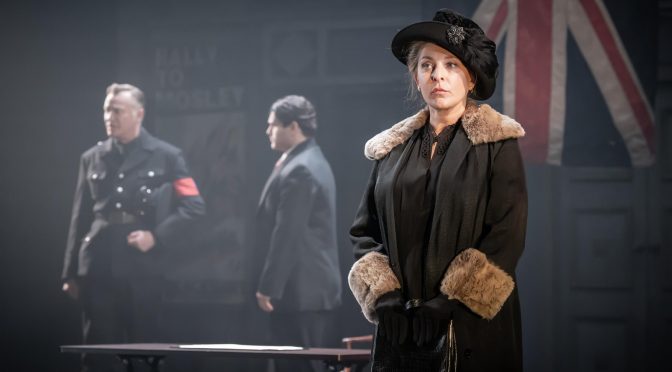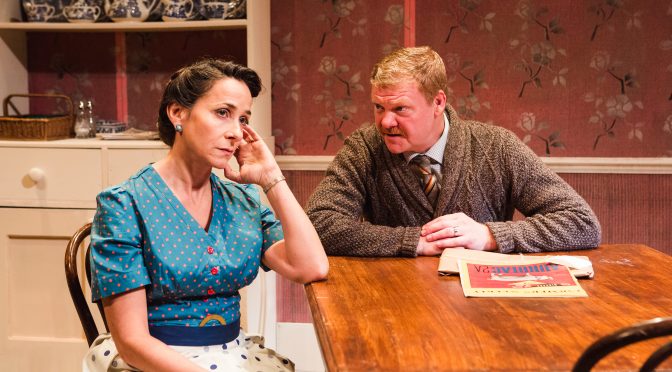This touring production, in association with the RSC, the Watford Palace Theatre and Home Manchester, has already received deserved acclaim. But since director Brigid Larmour has relocated the action to a specific year in the East End of London, seeing the show in Grace’s Alley is extra special. Video work from Greta Zabulyte showing the battle of Cable Street (just around the corner) is chilling. At the end, an ovation is built into the production as we are invited to stand against fascism just as East Enders did 87 years ago.
Given current tragic events, it is sad rather than surprising that the show has extra power. Nonetheless, this abridgement of Shakespeare is excellent. Although less than two hours I didn’t miss much. You might say some romance has gone – or, rather, that nonsense with riddles and caskets is handled swiftly – and the role of Shylock’s daughter Jessica does suffer. But the focus on antisemitism here is clear and bold. The extent to which the establishment that money-lending Shylock is pitted against encourages hostility is a focus – hatred of the Jew is literally institutional. Casual prejudice is highlighted and often painful to watch.
The big twist is to see Shylock’s intended victim Antonio, often viewed as heroic , as an Oswald Mosley figure and it is jaw dropping. It is a marvel that a simple black shirt can change the play so much. Raymond Coulthard, who takes the role, makes a great villain. But all the characters become tainted by hate, including Hannah Morrish’s excellent Portia, who we want to like, but whose contempt of Shylock is disturbing. Also of note are Xavier Starr and Jessica Dennis, who play two relatively small roles that they make powerful, showing a mix of ignorance, spite and violence.
Of course, the star is Shylock, played by Tracy-Ann Oberman. A strong accent, impeccably delivered, emphasises her outsider status. While there is defiance, there is also a depressing resignation about the prejudice suffered. Larmour and Oberman are too smart to make Shylock a sympathetic figure. But we come closer to understanding the rage the character carries around – and how the chance at revenge is so quickly taken. A speech after the applause might explain why this performance is so brilliant – Cable Street is close to Oberman’s heart. At the risk of making a cold observation about such an impassioned performance, Oberman reminds us how live – as well as raw – theatre can be.
Until 11 November 2023 and then on tour until 10 February 2024
www.merchantofvenice1936.co.uk
Photo by Marc Brenner



